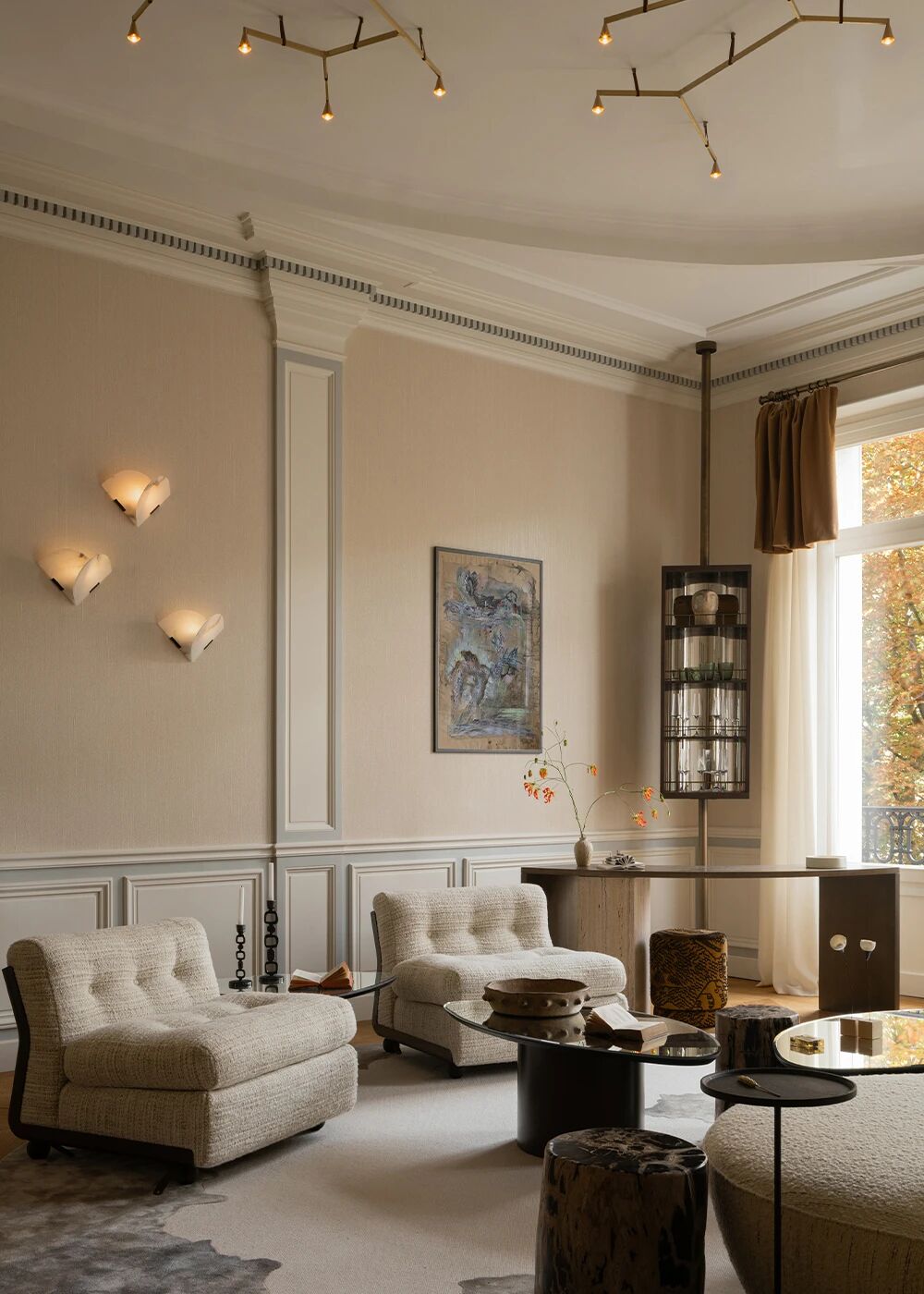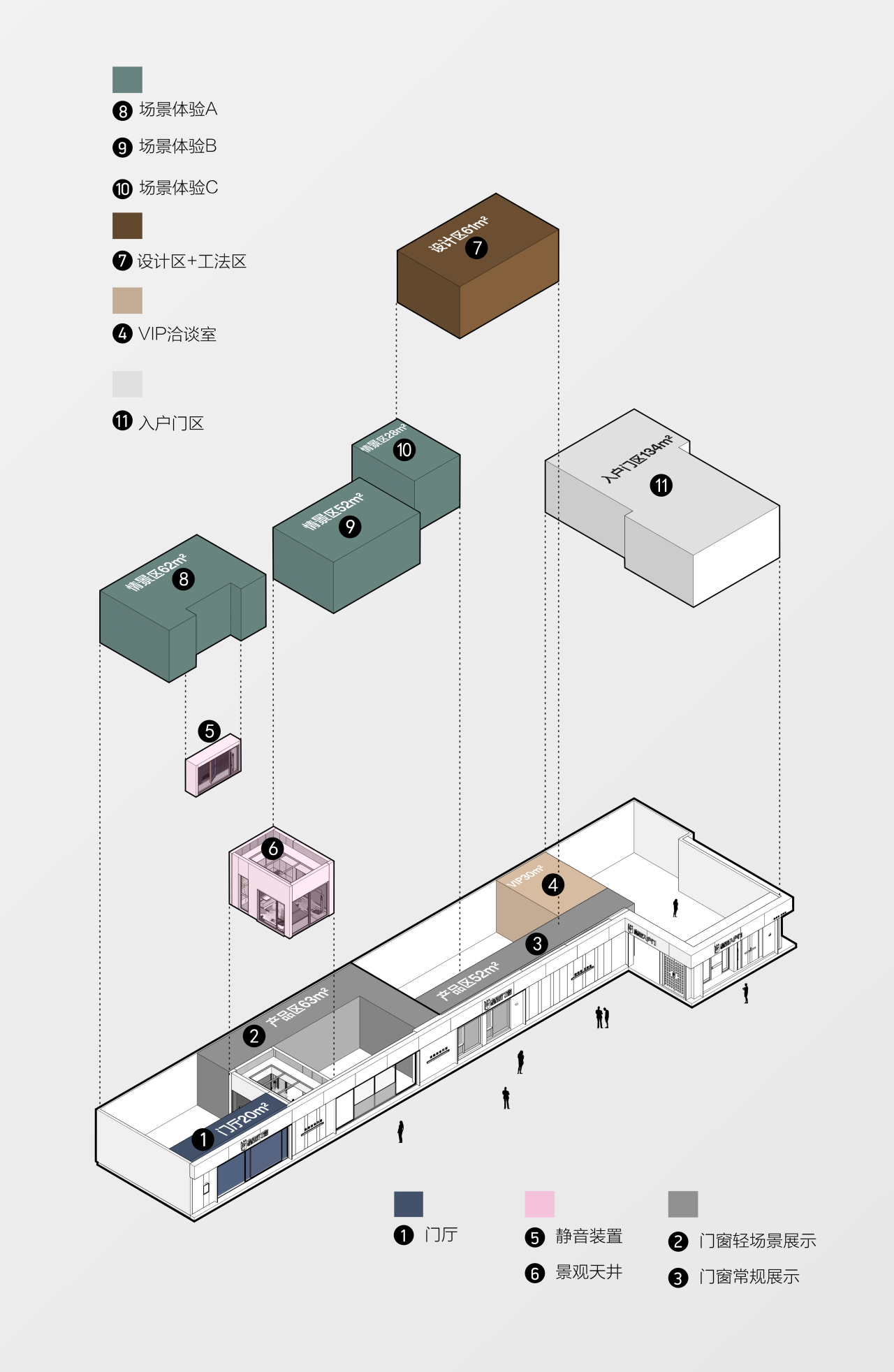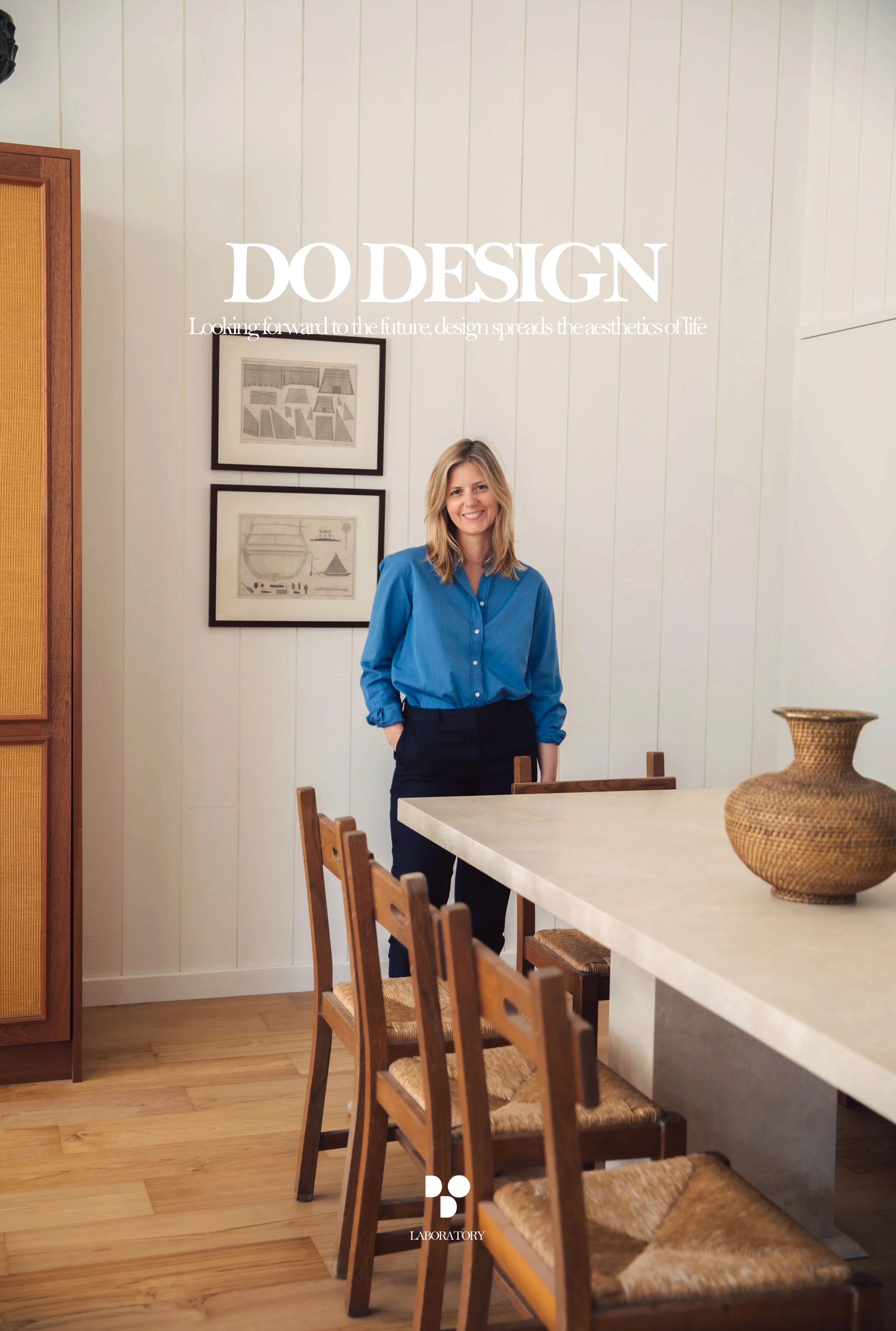Off-the-Grid Glass Box House / Mark Aronson Architecture
2018-01-04 12:29
Architects: Mark Aronson Architecture Project: Off-the-Grid Glass Box House Location: Perth Hills, Australia Photography: Douglas Mark Black
建筑师:马克·阿伦森建筑项目:非格子玻璃盒的位置:澳大利亚珀斯山摄影:道格拉斯·马克·布莱克
Located on a granite outcrop of the scarp, this small project is a restrained piece of contemporary design, a steel and glass box house. This site (near Darlington on the Perth Darling Range), required careful consideration of the placement of the architectural solution within the natural environment. The brief called for garden room and kitchen extension, plus interior and exterior renovation works that built upon the bones of an existing late 1970’s dwelling on the site.
坐落在悬崖花岗岩露头上,这个小工程是一个受限制的当代设计,一个钢和玻璃盒子。这个地点(在珀斯达林山脉的达林顿附近),需要仔细考虑在自然环境中的建筑解决方案的放置。简报要求花园房和厨房扩建,加上建筑在70年代后期一处遗址上的现有住宅骨头上的内部和外部翻修工程。
The original building, largely of masonry (brown brick with concrete floors), offered good thermal mass qualities, but was inward looking and with generally low ceilings. The architectural solution was to extend north into the bush and allow for breakout spaces for outside living to occur either side.
最初的建筑,主要是砖石(带有混凝土地板的棕色砖),提供了良好的热质量,但是内向的和一般较低的天花板。建筑的解决方案是向北延伸到灌木丛中,并允许外部居住的突破空间出现在两侧。
The glass frames a view of the vegetation and rocks beyond, and establishes a relationship between the house and landscape setting that previously did not exist. An external bench seat in cement finish forms the garden edge. The design opens out towards the weather, the owners are at once transported deep into the landscape itself. In the morning and evening surrounded by birdlife with the sounds of insects at dusk.
玻璃镜框可以看到远处的植被和岩石,并建立了以前不存在的房子和景观设置之间的关系。水泥修整中的外部长凳座形成了花园的边缘。设计面向天气,业主立即深入到景观本身。在早晨和晚上,周围都是小鸟,黄昏时,伴随着昆虫的声音。
The intervention quietly lands a modernist box in a foreign (almost alien) landscape. It feels like a long way from anywhere. The lights of the city below are only visible in the distance, still some sense of ‘otherworldy’ is here, particularly at dawn when the sky is cold.
这种干预在外国(几乎是外星)的景观中悄悄地把一个现代主义者的盒子放了下来。感觉离任何地方都很远。下面这座城市的灯光只有在远处才能看见,还有一种“超凡脱俗”的感觉,尤其是在天寒地冻的黎明。
Within this space, a well-designed interior is a sharp contrast to the primality of the landscape outside. This is not a spaceship, but feels like a functional and refined interior HQ. The Interior Cabinetwork design evolved through a close working relationship with Simone Meraldi, an Italian joiner. Plywood edge and grey laminate, reflecting a simple and reduced interior palette. The table was commissioned by local Furniture-maker Nathan Day, the plan had been to provide a new family space where the owners would be able to cook and sit whilst being able to keep an eye on a newborn.
在这个空间里,一个精心设计的内部与外部景观的原始性形成了鲜明的对比。这不是一艘宇宙飞船,但感觉像是一个功能完善的内部总部。室内橱柜设计是通过与意大利工人SimoneMeraldi的密切工作关系而发展起来的。胶合板边缘和灰色层压板,反映了一个简单和缩小的内部调色板。这张桌子是由当地家具制造商NathanDay委托的,当时的计划是提供一个新的家庭空间,让主人能够做饭和坐着,同时也能照看新生儿。
The building integrates natural good ventilation principles, with breezeway louvres flushing out the warm air overnight with cooling easterly breezes and insect screens. Light and shade are balanced between old and new, achieved in an intelligent architectural solution. The project is successful in combining the interior spatiality with exterior rooms and views. These ancillary spaces support an indoor-outdoor lifestyle, where an awareness of the seasons is played out between the landscape and the house. In summer, these are entertainment decks where music and cooking happen. In winter the kitchen space is filled with light, or the rain plays out from the comfort of within.
该建筑结合了自然良好的通风原理,风道百叶窗在一夜之间用冷却的东风和昆虫屏风冲洗出温暖的空气。光线和阴影在新旧之间保持平衡,在智能建筑解决方案中实现。该项目成功地将室内空间与外部空间和景观结合起来。这些附属空间支持室内-室外生活方式,在这里,在景观和房子之间发挥季节意识。在夏天,这里是音乐和烹饪的娱乐场所。冬天,厨房的空间里充满了光线,或者雨水从内心的舒适中释放出来。
Fundamentally constructed in timber structure by Hans Donni, a Swiss Builder whose careful attention to detail made this project a reality. The site is in a bushfire zone, but eliminated some of the risks by being built away from the upward slope, so the team succeeded in achieving open glazed areas where otherwise not possible. However, construction access to this site was not easy. Lightweight construction was chosen for practical reasons – avoiding footings in granite, speed and the inherent sustainability of wood. Cement sheet where required was used for protection to the frames. High levels of insulation in walls and glass selection were integrated to achieve optimum performance for the client.
从根本上说,是由瑞士建筑师汉斯·多尼(HansDonni)在木材结构中建造的。该场地位于灌木丛火区,但通过远离向上斜坡,消除了一些风险,因此,该小组成功地在不可能的情况下实现了开放的琉璃区。然而,进入这个网站并不容易。选择轻型建筑是出于实际原因-避免花岗岩中的基座、速度和木材固有的可持续性。在需要时使用水泥片对框架进行保护。高水平的墙壁绝缘和玻璃选择是集成的,以实现客户的最佳性能。
 举报
举报
别默默的看了,快登录帮我评论一下吧!:)
注册
登录
更多评论
相关文章
-

描边风设计中,最容易犯的8种问题分析
2018年走过了四分之一,LOGO设计趋势也清晰了LOGO设计
-

描边风设计中,最容易犯的8种问题分析
2018年走过了四分之一,LOGO设计趋势也清晰了LOGO设计
-

描边风设计中,最容易犯的8种问题分析
2018年走过了四分之一,LOGO设计趋势也清晰了LOGO设计


























































